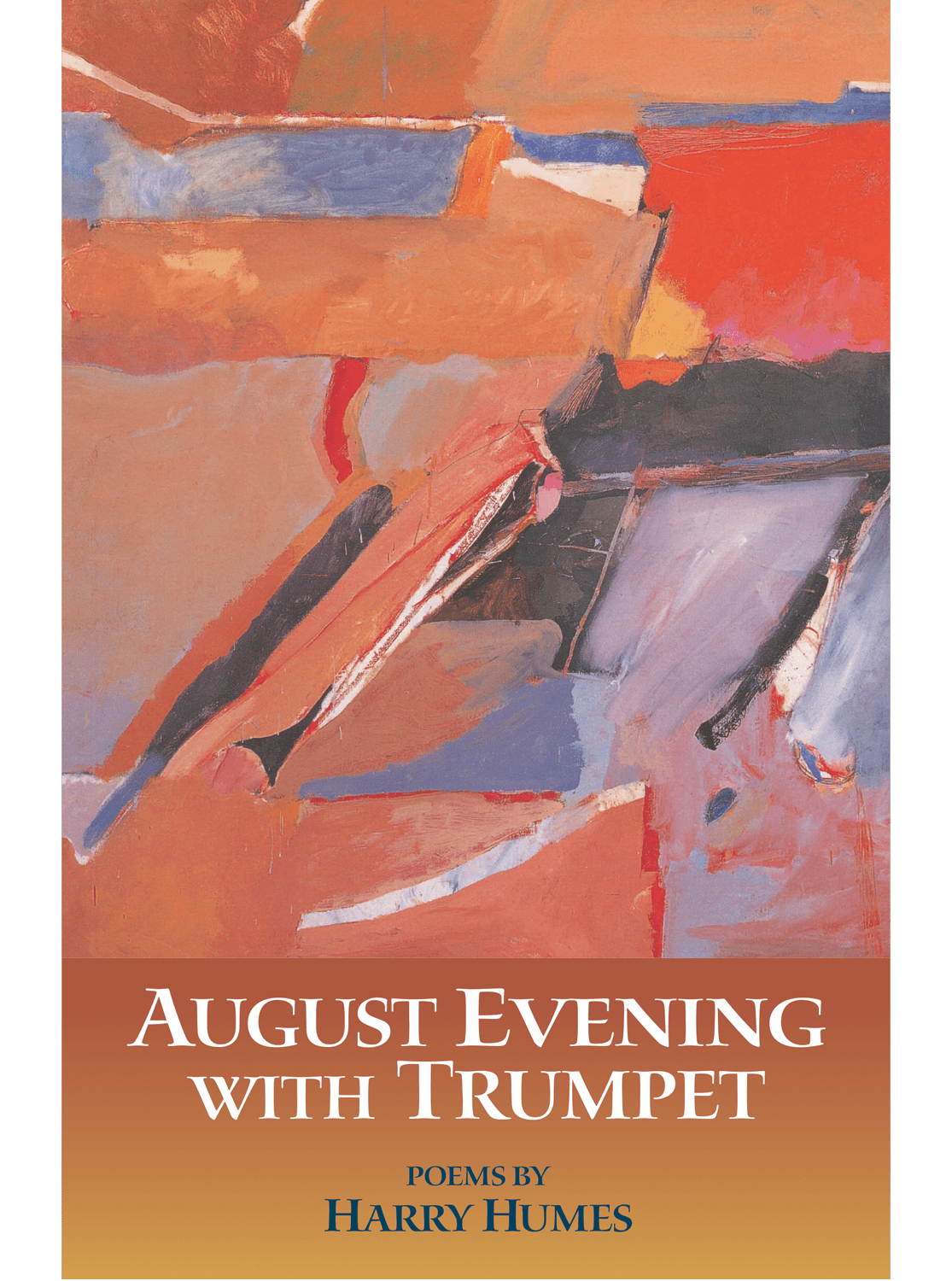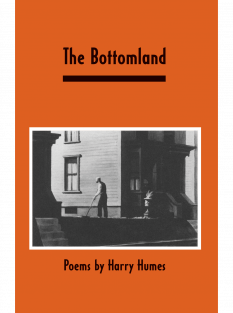From its first poem, “String,” with its mythic overtones to the final “The Movement of Ice,” August Evening with Trumpet deals with the varieties of surprise and mystery, pain and wonder in the human experience. In constant motion, this collection ranges across a broad landscape, one in which trout swim through a house, where a coal miner father on vacation digs clams, where an old mother refuses help as she walks a narrow plank across a brook, and where in the quietly moving “Late November,” the speaker releases a raccoon from a leg-hold steel trap.
Uncluttered, clear, and direct, the poems move effortlessly and seamlessly into one another, gathering an overall pleasing unity and narrative energy. And if there is a vein of quiet sorrow and darkness running through the collection, it is balanced against courage, grace, and good humor. At the book’s center is a deep reverence for childhood, for parents, for children, for language, and for landscape, all of which Humes admirably holds up for us. Harry Humes’s work brings to mind William Blake’s “To see a World in a Grain of Sand / And a Heaven in a Wild Flower.”
Harry Humes’s most recent collection is Butterfly Effect, selected by Pattiann Rogers for the 1998 National Poetry Series, and published in 1999 by Milkweed Editions. Previous collections are Ridge Music, The Way Winter Works, and The Bottomland, all published by the University of Arkansas Press. Poetry Northwest awarded him its Theodore Roethke Poetry Prize for his poem “Calling in the Hawk,” and his poem “Butterfly Effect” was selected by James Tate for Best American Poetry of 1997. He is a recipient of a National Endowment Poetry Fellowship and several poetry grants from the Pennsylvania Council on the Arts. He is a professor emeritus at Kutztown University.
“At the heart of Harry Humes’ best poems here and elsewhere is the boldly human way he walks through and inhabits the natural world. He never personifies there or falls for the pathetic fallacy because he knows enough to allow for the beauty of nature to emerge fully in all of its dangerous and harmonious ways. . . . This new book is marked by a clarity of words and of purpose that shimmers, and a stubborn and elegant insistence throughout that good words spoken well matter in our lives.”
—Bruce Weigel, author of The Circle of Hanh: A Memoir and The Unraveling Strangeness: Poems
“Humes excavates a natural world ‘tangled in understory’ and creates a ‘sinewy fellowship’ between human beings and their fellow creatures. To that fellowship, Humes brings stories of ‘mismatched lives and turned-out pockets after all those years at Tastykake and Ford.’ Read this book for Humes’ animation of the coal breaker with its ‘blackened guts’ and his depiction of the father/son relationship forged in the ‘row house that leaned / to one side because of mine subsidence.’ I admire Humes’ spare, beautifully made lines and their restless, uneasy love for the people and things of this world.”
—Robin Becker, author of The Horse Fair and All-American Girl


